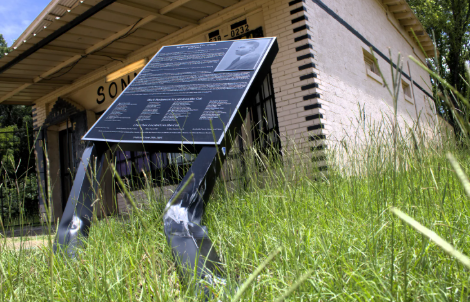Greg Grant: The African influence in the South
Published 2:00 am Saturday, February 18, 2023

- Greg Grant
I love both cultural and horticultural history. Since February is Black History Month, it’s a good time to note the plethora of our Southern influences from Africa.
Although most Texas lawns are blanketed with manicured modern turfgrasses today, not long ago, bare dirt swept yards were the norm. Most authorities credit Africa with their introduction into the South. Whether it was for neatness, fire suppression, avoidance of livestock, or fear of rodents and snakes, most rural homes and cemeteries (pre-turfgrass and lawn mowers) were once scraped bare of all grass and weeds and raked or swept smooth with home-made twig brooms from dogwood branches or grass brooms from native broomsedge bluestem.
Trending
And long before plastic pink flamingos dotted the vernacular landscape, one might have found bottle trees gracing the front yard. These early forms of Southern yard art have their origins in Africa as well, where early glass bottles were hung from trees to trap evil spirits before they entered the home. In Texas and the South, assorted bottles were generally stuck on branches of dead trees and later fence posts in the yard for crude “stained glass” ornament.
But the greatest African impact on our landscape is firmly rooted in our soil. As a lifelong gardener, it’s almost impossible to fathom an East Texas garden without peas, watermelons, and okra, all native to and originally domesticated in Africa. Sorghum (syrup and grain) is also from Africa as are raucous guineas that used to dot many East Texas farmsteads. And every time I watch hay baling in progress, I can’t help but recall that both the Bermudagrass and the cattle egrets gliding above are from Africa as well. So, when you tread on a Bermudagrass golf green, you’re walking across Africa.
I bet very few gardeners realize that a rural summertime scene full of crinum lilies, periwinkles, and castor beans are all heirloom African introductions passed down by our ancestors. Geraniums, gladiolus, plumbago, airplane plant, gerbera daisy, and of course African violets are African natives as well. And we certainly can’t forget coffee whose “beans” come from an African plant as well.
Even several of our Southern words are African in origin including goober (peanut), yam (sweet potato), jambalaya (ham rice), and gumbo (okra). Remember, the next time you order gumbo, if it doesn’t have okra in it, it’s really not “gumbo.” You can thank Africa for that. You can also thank Africa for a heaping helping of our Southern roots as well.






